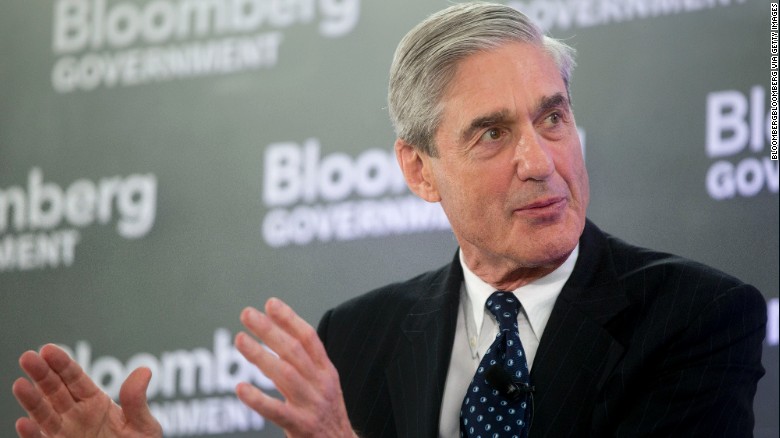- Ex-FBI Chief Mueller Named Special Counsel on Russia Probe
The U.S. Justice Department has named former FBI Director Robert Mueller as special counsel to oversee the bureau’s investigation of Russia’s efforts to influence the 2016 election, as well as possible collusion by Trump campaign associates, and to prosecute any federal crimes uncovered.
The naming of Mueller — a former federal prosecutor who oversaw the Federal Bureau of Investigation during the Sept. 11, 2001, attacks — comes as the White House is reeling from President Donald Trump’s decision to fire FBI Director James Comey on May 9. That was followed by allegations Trump asked Comey in February to end his probe of former National Security Adviser Michael Flynn.
Trump was notified of the decision only about 25 minutes before it was made public — and only after the order was signed by Deputy Attorney General Rod Rosenstein, a White House official said. Rosenstein called White House counsel Don McGahn to inform him and McGahn told Trump.
Trump and chief of staff Reince Priebus told senior staff who gathered in the Oval Office that the decision meant it was up to Mueller to talk about the investigation now and the White House could return to talking about Trump’s agenda. The official said the moment was calm and oddly refreshing after weeks of chaos surrounding the probes.
Appointment of a special counsel was a key demand by many Democrats in the wake of those revelations, and Mueller was given broad powers by Rosenstein.
‘Unique Circumstances’
“My decision is not a finding that crimes have been committed or that any prosecution is warranted,” Rosenstein said in a statement. “I have made no such determination. What I have determined is that based upon the unique circumstances, the public interest requires me to place this investigation under the authority of a person who exercises a degree of independence from the normal chain of command.”
The dollar clawed backed losses during Asian trading hours Thursday and U.S. equity futures rose after concern over U.S. political turmoil rippled across global markets. Futures on the S&P 500 Index were up 0.3 percent as of 3:13 p.m. in Hong Kong, after the underlying gauge fell 1.8 percent Wednesday, the most in eight months.
Rosenstein issued an order authorizing Mueller to pursue the investigation into Russian meddling, including “any links and/or coordination between the Russian government and individuals associated with the campaign of President Donald Trump.”
‘Authorized to Prosecute’
“If the Special Counsel believes it is necessary and appropriate, the Special Counsel is authorized to prosecute federal crimes arising from the investigation of these matters,” the order says. That means he can issue subpoenas, present evidence to a grand jury and bring charges — all the powers of a federal prosecutor.
“As I have stated many times, a thorough investigation will confirm what we already know — there was no collusion between my campaign and any foreign entity,” Trump said in a brief statement. “I look forward to this matter concluding quickly.”
Meanwhile, the New York Times reported Thursday that Trump’s transition team knew Flynn was under federal investigation before he was made national security adviser. Flynn disclosed weeks before the inauguration the probe into his work as a paid lobbyist for Turkey, the newspaper said, citing two people familiar with the case.
Russia Probe
The FBI’s probe into Russia’s role in the 2016 election and potential links with Trump’s campaign had been overseen by Rosenstein and acting FBI Director Andrew McCabe. Attorney General Jeff Sessions recused himself from the inquiry earlier this year after it was revealed he had not disclosed conversations with Russia’s ambassador to the U.S.
Rosenstein, who is scheduled to brief the full Senate behind closed doors on the Russia probe Thursday, made the decision to name Mueller, according to the Justice Department.
Mueller, 72, was FBI director under Presidents George W. Bush and Barack Obama and was the longest-serving head of the bureau since J. Edgar Hoover. In the aftermath of the Sept. 11 attacks, as the U.S. was ramping up security, he joined then-Deputy Attorney General Comey in threatening to resign if the White House overruled a Justice Department opinion that domestic wiretapping without a warrant was unconstitutional.
Before joining the FBI, Mueller served as U.S. Attorney in San Francisco and held other positions in the Justice Department. Obama asked Mueller to stay in office two years beyond the normal 10-year term.
Since leaving government service, Mueller has been a partner at WilmerHale LLP. The law firm confirmed Mueller’s resignation Wednesday evening.
“I accept this responsibility and will discharge it to the best of my ability,” Mueller said in a statement.
‘Great Selection’
Unlike Comey, who Trump charged was a “showboat” and a “grandstander,” Mueller typically shied away from making comments to reporters and routinely refused to discuss ongoing investigations. He also won wide praise as FBI director from Democrats and Republicans in Congress, an attribute that may help steady concerns about the handling of the Russia probe.
“Mueller is a great selection,” Republican Representative Jason Chaffetz, chairman of the House Oversight Committee, said on Twitter after the decision was announced. “Impeccable credentials. Should be widely accepted.”
Representative Elijah Cummings, the top Democrat on the committee, said “I think that’s probably a good choice. I’ve been impressed by him.” Senator Dianne Feinstein, ranking Democrat on the Judiciary Committee, called the selection “excellent.”
It’s unclear how the appointment might affect the multiple probes already under way in Congress.
“I just don’t have a precedent for this that I can tell you,” Senate Judiciary Chairman Chuck Grassley said when asked about the impact of Mueller’s designation.


 Forex3 weeks ago
Forex3 weeks ago


 Naira2 weeks ago
Naira2 weeks ago
 Billionaire Watch2 weeks ago
Billionaire Watch2 weeks ago




 Naira2 weeks ago
Naira2 weeks ago




 Naira2 weeks ago
Naira2 weeks ago




 Naira1 week ago
Naira1 week ago




 Naira4 weeks ago
Naira4 weeks ago




 Naira3 weeks ago
Naira3 weeks ago





















